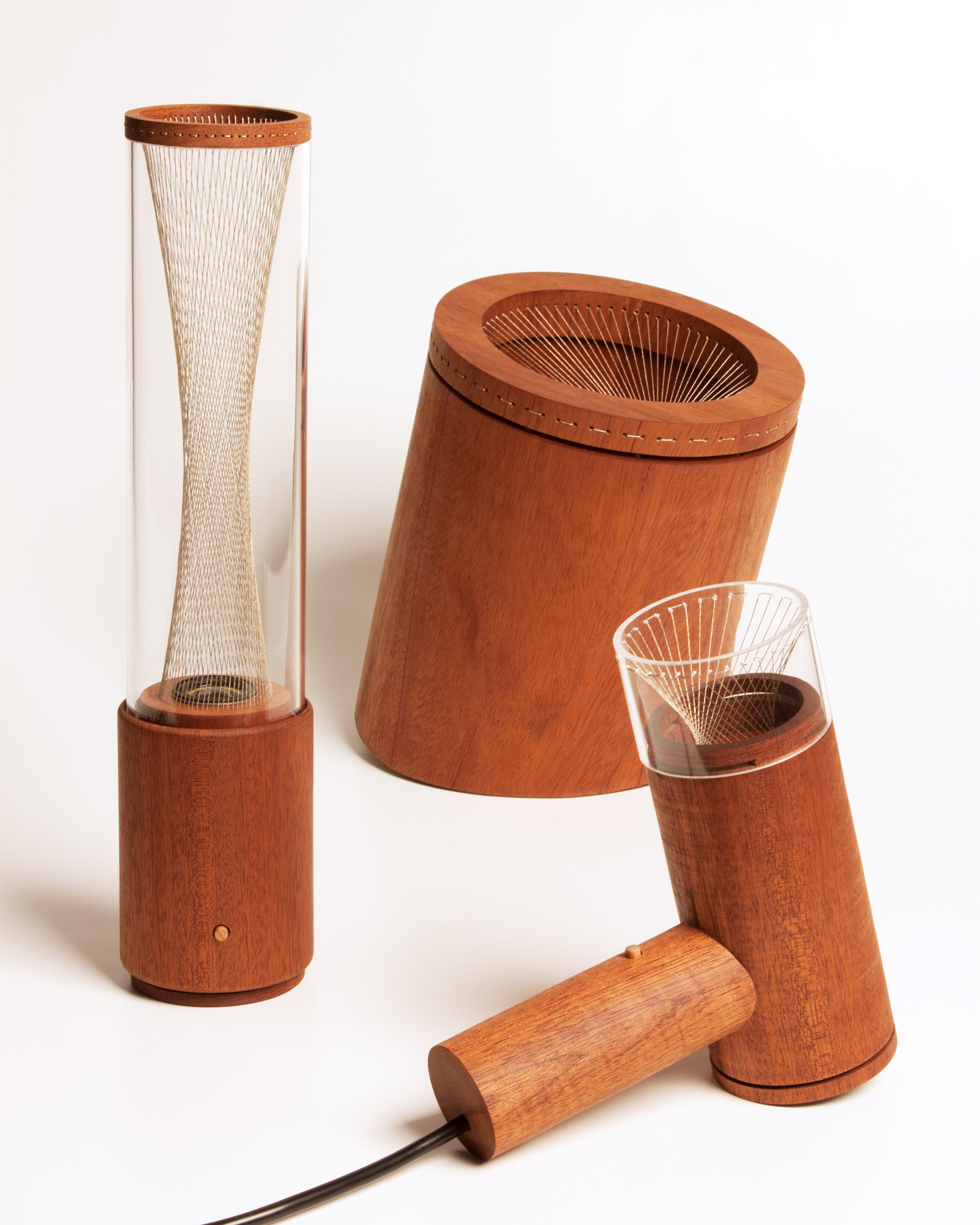
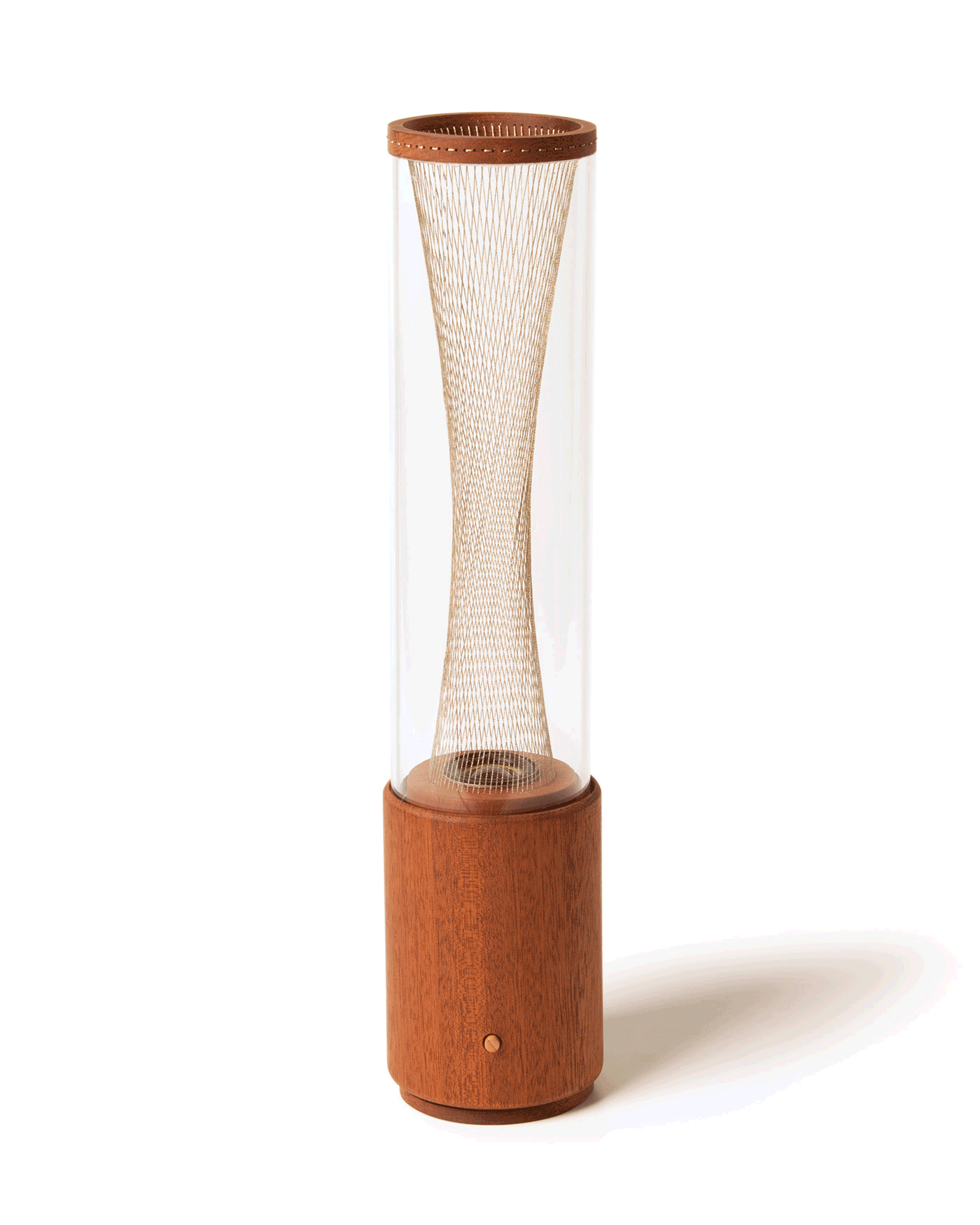
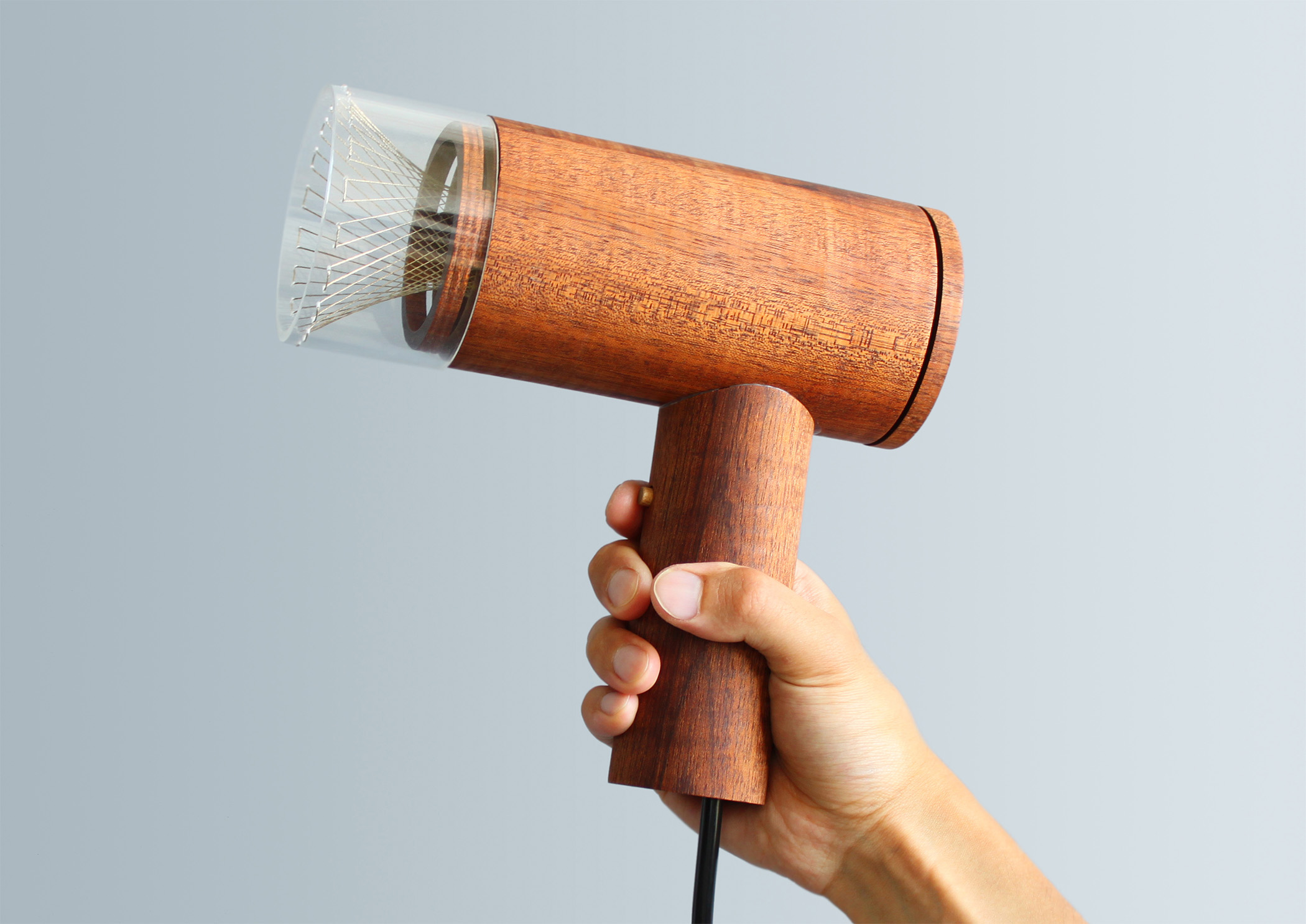
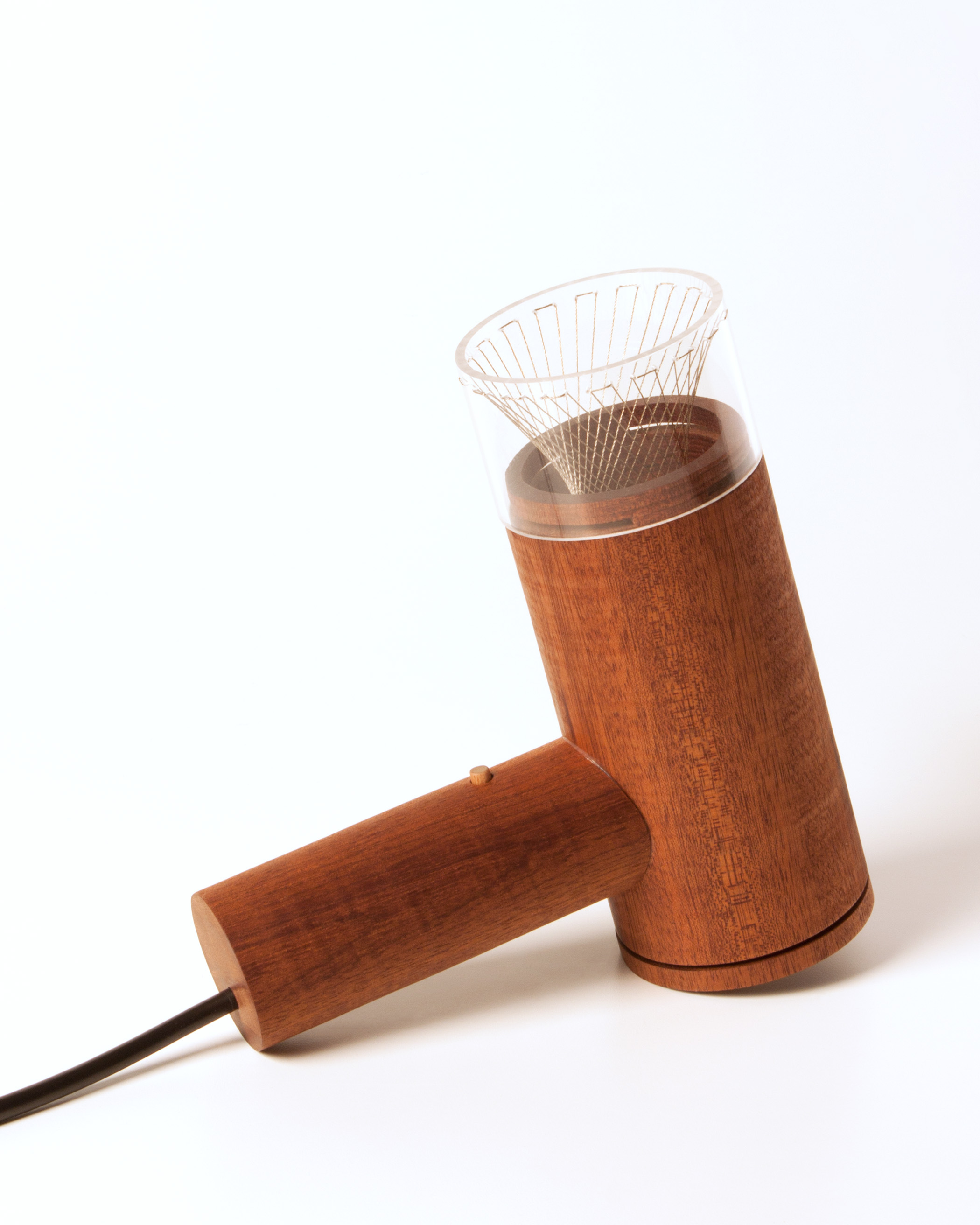
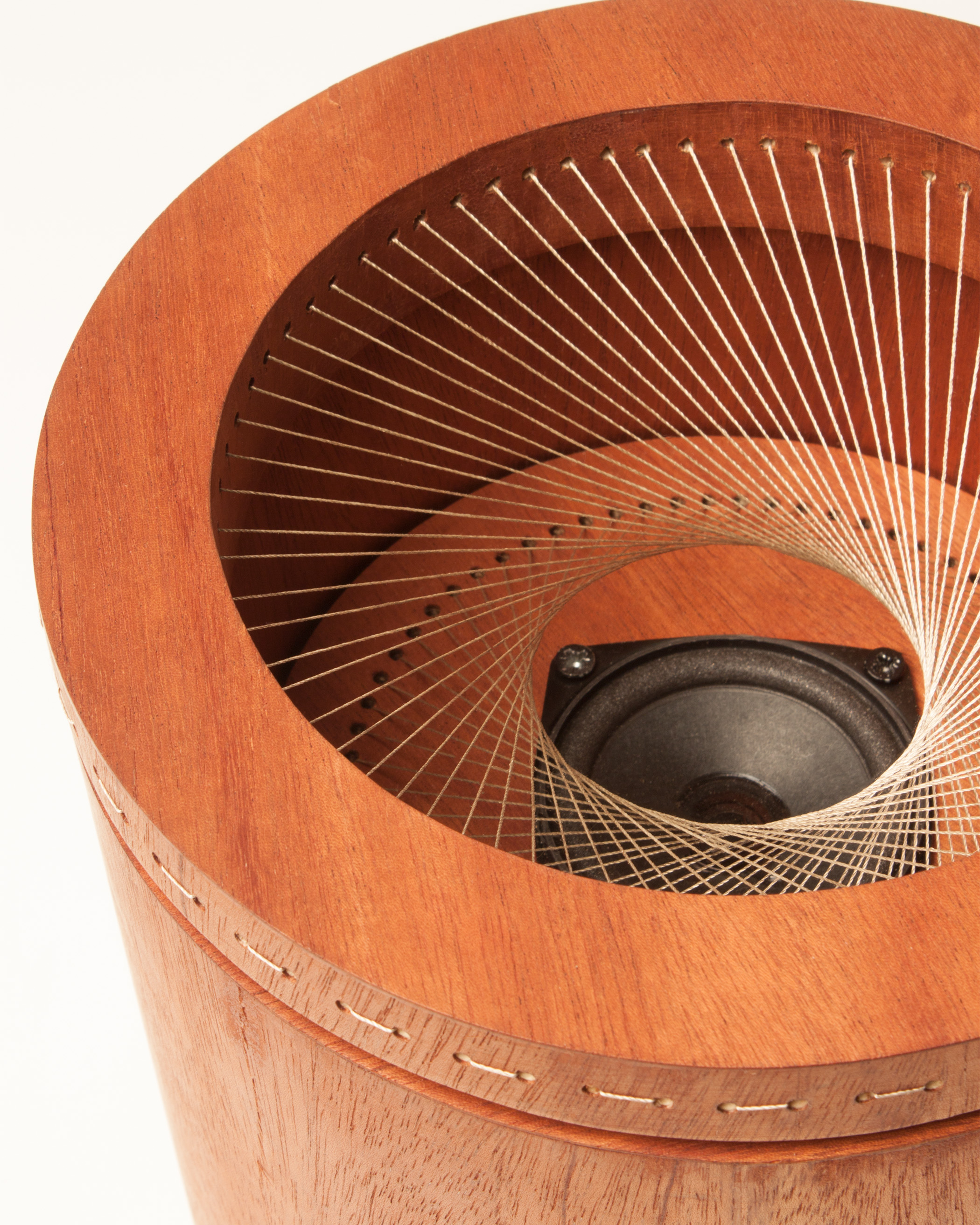
CRAFT-TECHMEN PROJECT
- / wood, conductive thread
- / home appliances
- / product design
- / social design
A new series of home appliances that can be repaired like crafts for our sustainable society.
This project is the result of one year of research as a graduation project at the Design Academy Eindhoven, the Netherlands.
The word “design” has long been understood as a means of stimulating consumer appetite for promoting economic activities in Japan, which experienced high economic growth in the postwar period. The strategy aimed at bringing better but cheaper products to market has had a positive impact on the Japanese economy through price competition and improved quality, but it has also created certain problems in a society based on mass production and consumption: the need for continuous economic growth.
Once it comes to a halt, the way products used to be made will no longer work.
For example, Japan has been in a recession for almost 30 years since the bubble economy burst in the late 1980s. Even though growth had stopped, changing production methods were fraught with a big risk for Japanese companies that had not forgotten their postwar success stories. They chose to continue to produce more new products than necessary, based on the belief that as long as they made good products, consumers would buy them. This led to design becoming close to the market and used as a stimulus to the economy.
Although the design could be used not only for economic growth but also for making society better, we have lacked in planning what the society should be. It seems that our world has difficulty keeping growing economically. Japan, as a country whose economy has been stuck, might have the potential to escape from the economic competitiveness world and to suggest a new vision.
Then, what kind of social system would be a standard in the future? If we think of a system that allows us to continue to use the same products, instead of selling new ones every season every year, we may be able to create a better world without compromising economic activities. This can be learned from the “circular economy (Fig.1)” in which Japanese craftsmen made and repaired everything necessary for daily life in the past.
Home appliances, on the other hand, have been becoming increasingly complicated, and therefore they tend to be discarded when broken. This “linear economy (Fig.2)” in which the manufacturer has no responsibility for repairs, is in the opposite position from sustainability. But what if we could create a system to produce and repair appliances like a craft? Having the responsibility for repairing the product is the obligation of all companies involved in manufacturing, and should become the norm in the future.
Based on this concept, we propose "Craft-techmen," a new professional group that produces home appliances with a circular system. The Craft-techmen, which is a small guild of designers, engineers, and craftsmen, cannot produce in large quantities, but they would be able to produce and repair in all transparent processes with low environmental impact (Fig.3).
As an example of the products by the Craft-techmen, three home appliances (speaker, radio, and hairdryer) are prototyped. Sewing is implemented for assembling the appliances so that they will be easily disassembled and repaired when they are broken. Not only that, but the thread is also conductive and it gives a new function, a simple dimmer switch. By rotating a certain part, the sewed conductive threads are adjusted to different levels of contact and this causes voltage variation. The system can be adapted to different functions by reprogramming the microcomputer, for instance, changing the volume on a speaker, the temperature of a hairdryer, or channels on a radio.
Thus, if the products are designed for repair in the circular system, they will be used for a long time and handed down to the next generation. In general, technology and crafts tend to be regarded as opposites, but if they are integrated for making appliances like how crafts are made, this may show a possible way and lead to achieving a well-balanced society.
This project suggests a new social system that is needed in a world moving toward a sustainable society for the future.

